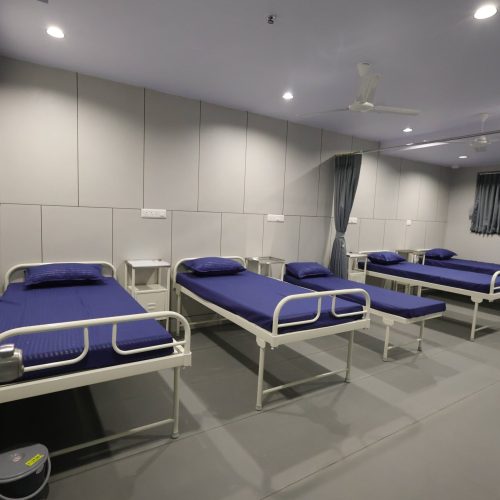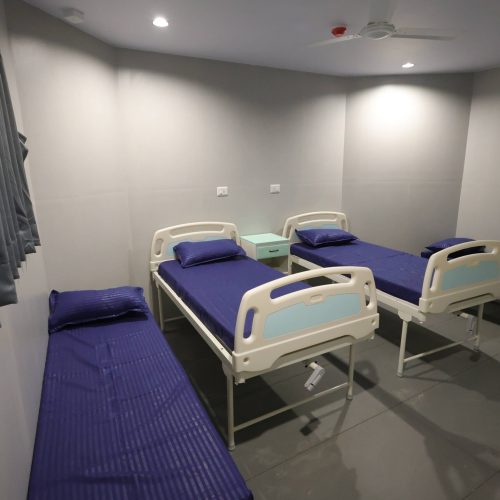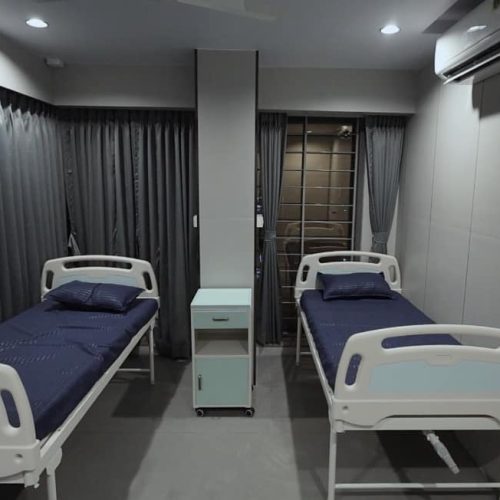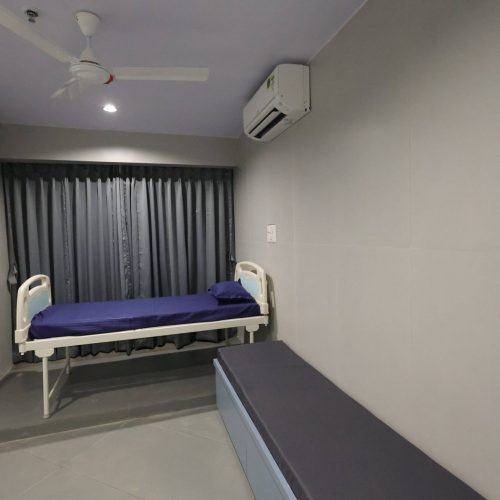Shantmann Hospital
We are committed to providing excellent healthcare services by an effective and professional way to meet with patients, community needs and expectations.
Caring for the individual ; adhering to an uncompromising code of ethics and continuing to learn and work in a constant effort to improve our skills, programs and services are what define Shantmann neuropsychiatry care center as it stands today.
We focus on offering a wide range of consistent high quality and up-to-date psychiatric and psychological care that allow us to improve the health of the communities we serve with compassion and sensitivity to the individual needs of our patients and their families.

Psychological Assessment & Testing Services
Psychological testing and assessment is nothing to fear. It’s not something you need to study for. Rather, it’s an opportunity for Psychiatrist to determine the best way to help you.

Psychosexual Issues
Sexual problems must be evaluated in terms of the relationships in which they are manifest. Most relationship problems can be thought of as including difficulties with communication, conflict, and commitment.

Alcohol & Drug Deaddiction
Finding help for drug addiction often begins with understanding what it is, how it impacts people and what signs and symptoms to look for. By understanding the impact substances have on the body, you can make better decisions.for yourself and loved ones who may be struggling with drug addiction.
How We Cure
Children can and do experience mental health problems. A fairly common misconception is that kids are too young to experience true stress and mental health difficulties. When one considers the definition of mental health, it becomes evident that it applies to all people, regardless of age or other factors;
If you or a loved one is dealing with the effects of mental illness, it can be difficult to find the right information or know what to do next. Understanding mental illness in its various forms is the best way to start.
An evaluation by a trained child & adolescent psychiatrist can help clarify problems that may be underlying a child’s behavior and provide reassurance or recommendations for next steps. It provides an opportunity to learn about a child’s strengths and weaknesses and determine which interventions might be most helpful.

Psychometric
Testing &
Career Counselling
From time to time we conduct workshops on various topics. Interested corporate and educational Institutions can contact us to know more details like conducting training for their employees and staff
Workshops &
Training
From time to time we conduct workshops on various topics. Interested corporate and educational Institutions can contact us to know more details like conducting training for their employees and staff
Frequently Asked Questions
Most frequently asked questions and answers
Symptoms/Concerns are what the patient or his carers feel he is experiencing. They can be classified into:
General Symptoms
Afraid to speak in a group, Anger, Anxiety, Concentration problems, Difficulty understanding things, Eating and appetite concerns, Inferiority feelings, Irritability, Memory problems, Mood problems, Not able to sit still, Phobias, Sex related problems, Sleep concerns, Stress and tension, Stuttering & stammering, Talking to self.
Specific symptoms
Bed wetting, Checking unnecessarily, Compulsions, Confusion, Eating disorders., Exhibitionism, Death wish – desire to die, Feeling that death is imminent, Grandiose thinking, Guilt feelings, Hearing voices, Increased suspicions and doubts, Obsessions, Persecutory ideation, Strange behaviour, Suicidal ideation, Unusual experiences like some body else is controlling the thoughts or actions, belief that somebody is doing black magic or “chathabadi” etc,Useless and repetitive thoughts
Addictions
Alcohol Addiction, Amphetamines, Cannabis, Grass, Ganja, Bhang, Cocaine dependence, Combinations like speedballing, Cough syrups and other Medicines, Gambling, Heroin, Morphine, Opium, Inhaling/Sniffing substances like Petrol, Glue, Turpentine, Whitener, Internet Addiction, LSD, Smoking, Tobacco: “Pan Paraag”, “Zarda”
Clinical depression
A mental health disorder characterised by persistently depressed mood or loss of interest in activities, causing significant impairment in daily life. Depression (major depressive disorder) is a common and serious medical illness that negatively affects how you feel, the way you think and how you act. Fortunately, it is also treatable.
Anxiety disorder
A mental health disorder characterised by feelings of worry, anxiety or fear that are strong enough to interfere with one’s daily activities.
Bipolar disorder
A disorder associated with episodes of mood swings ranging from depressive lows to manic highs.
Dementia
A group of thinking and social symptoms that interferes with daily functioning.
Attention-deficit/hyperactivity disorder
A chronic condition including attention difficulty, hyperactivity and impulsiveness.
Schizophrenia
A disorder that affects a person’s ability to think, feel and behave clearly.
Obsessive compulsive disorder
Excessive thoughts (obsessions) that lead to repetitive behaviours (compulsions).
Autism
A serious developmental disorder that impairs the ability to communicate and interact.
Post-Traumatic Stress Disorder
A disorder characterised by failure to recover after experiencing or witnessing a terrifying event.
The information pertaining to the condition of a patient is the exclusive right of the patient and it is treated with utmost confidentiality.
Your psychiatrist might suggest involving family members in your assessment. They will discuss this with you first.
A psychiatrist may be required by law to share information or a person’s medical record with others. Generally, your psychiatrist will tell you first if they need to do this.
It can be accessed by others only with the consent of the patient/ NR.
Mental illness is nothing to be ashamed of. It is a medical problem, just like heart disease or diabetes.




















